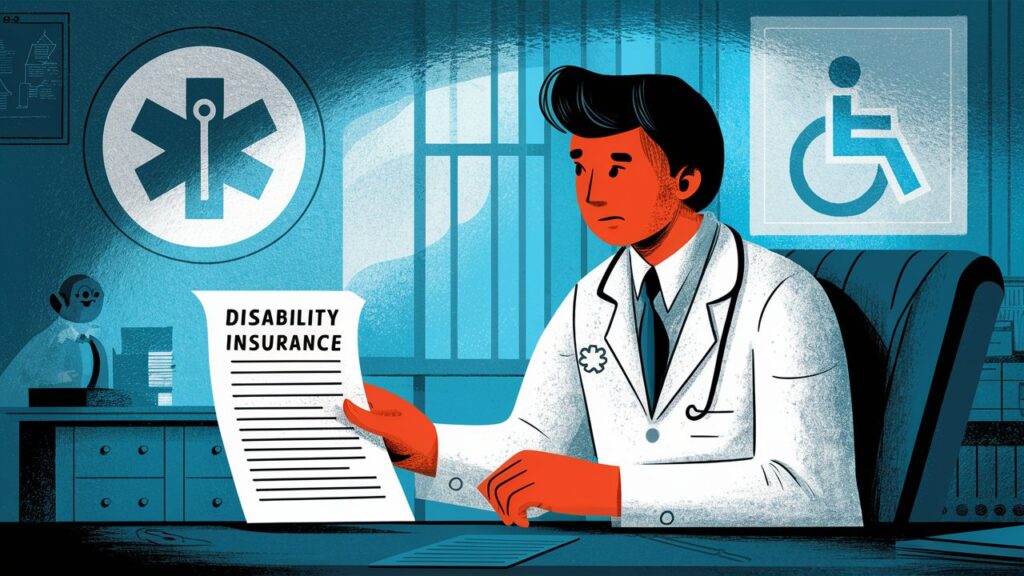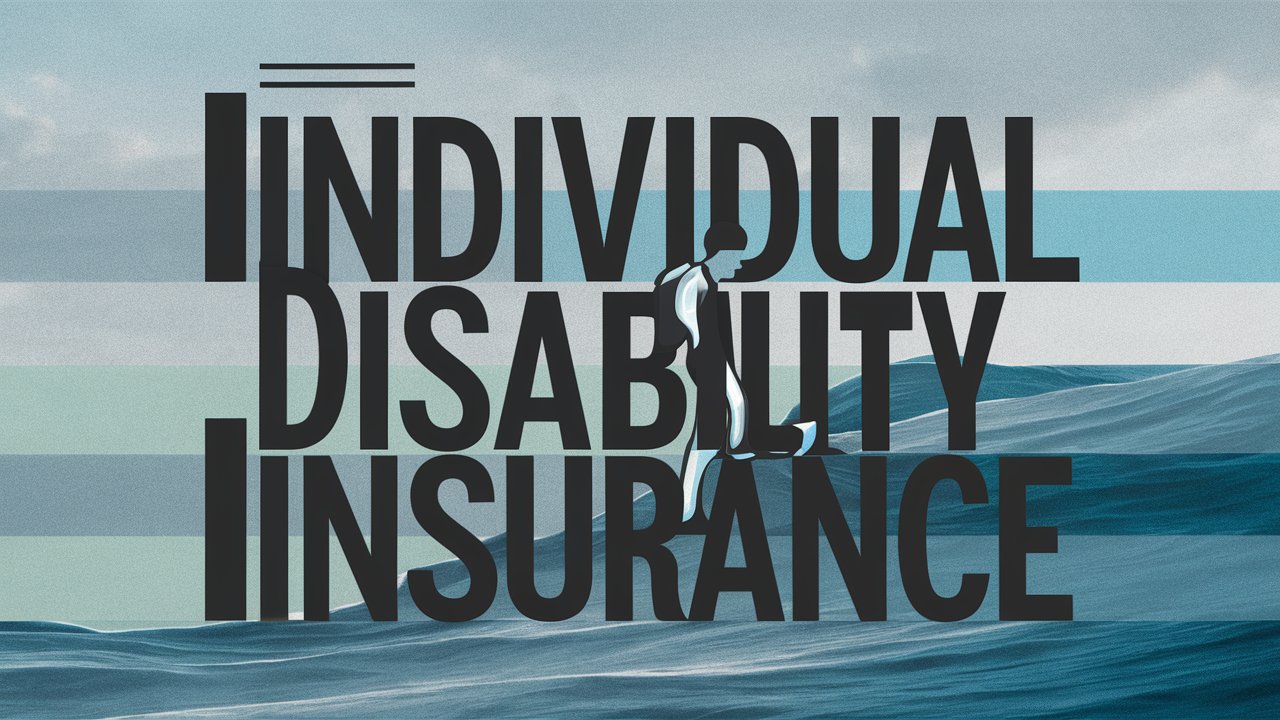The future of physician disability insurance will evolve with telemedicine’s rise, increased focus on mental health, and advancements in medical technology. Personalized and adaptable policies will cater to a diverse, tech-savvy workforce. Ongoing regulatory changes will require insurers to stay agile, ensuring comprehensive protection.
Introduction
In the fast-paced, high-stress world of medicine, the role of a physician is indispensable. These professionals dedicate their lives to healing and saving others, often at the expense of their own well-being. Despite their robust training and resilience, physicians are not immune to illnesses and injuries that could impede their ability to work. This is where physician disability insurance becomes a critical component of their financial planning. As the landscape of healthcare evolves, so does the nature of disability insurance. The future of physician disability insurance is being shaped by various factors, including technological advancements, changes in the healthcare industry, regulatory shifts, and evolving needs of physicians. This blog post explores these dynamics and provides a comprehensive overview of what lies ahead for physician disability insurance.
The Current State of Physician Disability Insurance
Before diving into the future, it is essential to understand the present scenario. Physician disability insurance is designed to protect doctors from the financial impact of a disabling illness or injury. These policies typically replace a significant portion of a physician’s income, ensuring they can maintain their standard of living and meet financial obligations if they can no longer practice medicine.

Physician disability insurance policies are often more expensive than standard disability policies due to the high income and specialized skills of physicians. However, they offer tailored benefits, such as own-occupation coverage, which ensures that physicians receive benefits if they are unable to work in their specific medical specialty, even if they can work in another capacity.
Technological Advancements and Their Impact
The rapid pace of technological advancement is transforming many aspects of healthcare, and disability insurance is no exception. Several key technological trends are set to influence the future of physician disability insurance
Telemedicine and Remote Work
The COVID-19 pandemic accelerated the adoption of telemedicine, allowing physicians to consult with patients remotely. This shift has implications for disability insurance, as it changes the nature of what constitutes a disabling condition. With the ability to work from home, certain physical disabilities that previously prevented a physician from practicing might no longer be as restrictive. Insurers will need to adapt their policies to account for the new capabilities and limitations introduced by telemedicine.
Wearable Technology and Health Monitoring
Wearable technology, such as fitness trackers and smartwatches, enables continuous health monitoring. These devices can provide valuable data on a physician’s health status, potentially allowing for earlier detection and intervention of conditions that could lead to disability. Insurers might leverage this data to offer personalized premiums and preventive care incentives, reducing the overall risk of disability claims.
Artificial Intelligence and Predictive Analytics
Artificial intelligence (AI) and predictive analytics are revolutionizing the insurance industry. Insurers can use AI to analyze vast amounts of data and identify patterns that predict the likelihood of disability claims. This can lead to more accurate underwriting, pricing, and risk management. For physicians, it means more tailored policies that reflect their specific health risks and professional circumstances.
Changes in the Healthcare Industry
The healthcare industry itself is undergoing significant changes that will influence physician disability insurance
Shift to Value-Based Care
The shift from fee-for-service to value-based care models emphasizes patient outcomes and cost efficiency. This change impacts physicians’ work environments and compensation structures. Disability insurance policies will need to adapt to these new payment models, ensuring that benefits align with the evolving financial landscape of healthcare professionals.

Increasing Burnout and Mental Health Concerns
Physician burnout and mental health issues are becoming increasingly prevalent. The demanding nature of the profession, coupled with long hours and high stress, contributes to these challenges. Disability insurance policies must address mental health as a potential cause of disability, providing adequate coverage for conditions such as depression, anxiety, and burnout. This may involve more comprehensive mental health benefits and support services.
Regulatory Shifts
Regulatory changes at both the federal and state levels can significantly impact the disability insurance market. Several potential regulatory shifts could shape the future of physician disability insurance
Changes to Social Security Disability Insurance (SSDI)
Social Security Disability Insurance (SSDI) provides benefits to individuals who cannot work due to a disabling condition. Changes to SSDI eligibility criteria or benefit structures could influence the demand for private disability insurance among physicians. If SSDI becomes more restrictive, physicians may seek additional private coverage to ensure adequate protection.
State-Level Insurance Regulations
State insurance regulations vary, and changes at the state level can impact disability insurance offerings. States may introduce new requirements for policy terms, consumer protections, or underwriting practices. Insurers will need to navigate these regulatory changes while ensuring compliance and maintaining competitive offerings.
Healthcare Policy Reforms
Broader healthcare policy reforms, such as changes to the Affordable Care Act (ACA) or new healthcare legislation, can indirectly affect physician disability insurance. For example, policies that impact healthcare access, physician compensation, or the overall healthcare ecosystem can influence the demand for and design of disability insurance products.
Evolving Needs of Physicians
The needs and preferences of physicians are also changing, driven by generational shifts and evolving career paths. Understanding these changes is crucial for insurers to meet the future demands of physician disability insurance
Generational Differences
Younger physicians, including Millennials and Generation Z, have different priorities and expectations compared to their older counterparts. They may prioritize work-life balance, flexibility, and mental health support. Disability insurance policies will need to reflect these values, offering coverage options that align with the preferences of the next generation of physicians.
Diverse Career Paths
Physicians today pursue diverse career paths beyond traditional clinical roles. Some engage in research, education, consulting, or administrative positions. Disability insurance policies must be flexible enough to accommodate these varied career trajectories, ensuring that coverage extends to non-clinical roles and part-time work.
Increasing Awareness and Education
There is a growing awareness among physicians about the importance of financial planning and risk management. Medical schools and professional organizations are placing greater emphasis on financial literacy and the role of disability insurance in protecting physicians’ livelihoods. This increased awareness will drive demand for comprehensive and transparent disability insurance products.
The Role of Insurers in Shaping the Future
Insurers play a pivotal role in shaping the future of physician disability insurance. To remain relevant and competitive, they must proactively adapt to the changing landscape. Several strategies can help insurers navigate the future
Product Innovation
Innovation is key to meeting the evolving needs of physicians. Insurers should develop new products and features that address emerging risks and preferences. This could include offering modular policies that allow physicians to customize coverage based on their specific needs, incorporating mental health benefits, and leveraging technology for personalized risk assessments.
Enhanced Customer Experience
The customer experience is becoming increasingly important in the insurance industry. Insurers should focus on providing a seamless and transparent experience for physicians, from the initial application process to claims management. This includes leveraging digital platforms for easy access to policy information, providing clear and concise communication, and offering responsive customer support.
Collaboration with Healthcare Providers
Collaboration between insurers and healthcare providers can enhance the value of disability insurance for physicians. Insurers can work with healthcare organizations to offer integrated wellness programs, preventive care initiatives, and early intervention strategies. This collaborative approach can help reduce the incidence of disabilities and improve overall physician health and well-being.

Education and Advocacy
Insurers have a role to play in educating physicians about the importance of disability insurance and advocating for their needs. This involves providing resources and tools to help physicians understand their coverage options, navigate the insurance landscape, and make informed decisions. Additionally, insurers can advocate for policies and regulations that support the well-being and financial security of physicians.
Conclusion
The future of physician disability insurance is being shaped by a dynamic interplay of technological advancements, changes in the healthcare industry, regulatory shifts, and evolving needs of physicians. As the landscape continues to evolve, insurers must remain agile and responsive to these changes, ensuring that their products and services meet the unique challenges and opportunities faced by physicians. By embracing innovation, enhancing the customer experience, collaborating with healthcare providers, and prioritizing education and advocacy, insurers can help secure the financial future of physicians and support their vital role in our healthcare system. The future of physician disability insurance holds great promise, and with the right strategies, it can provide robust protection and peace of mind for the physicians who dedicate their lives to caring for others.
For more details please visit our home page: Click Here

